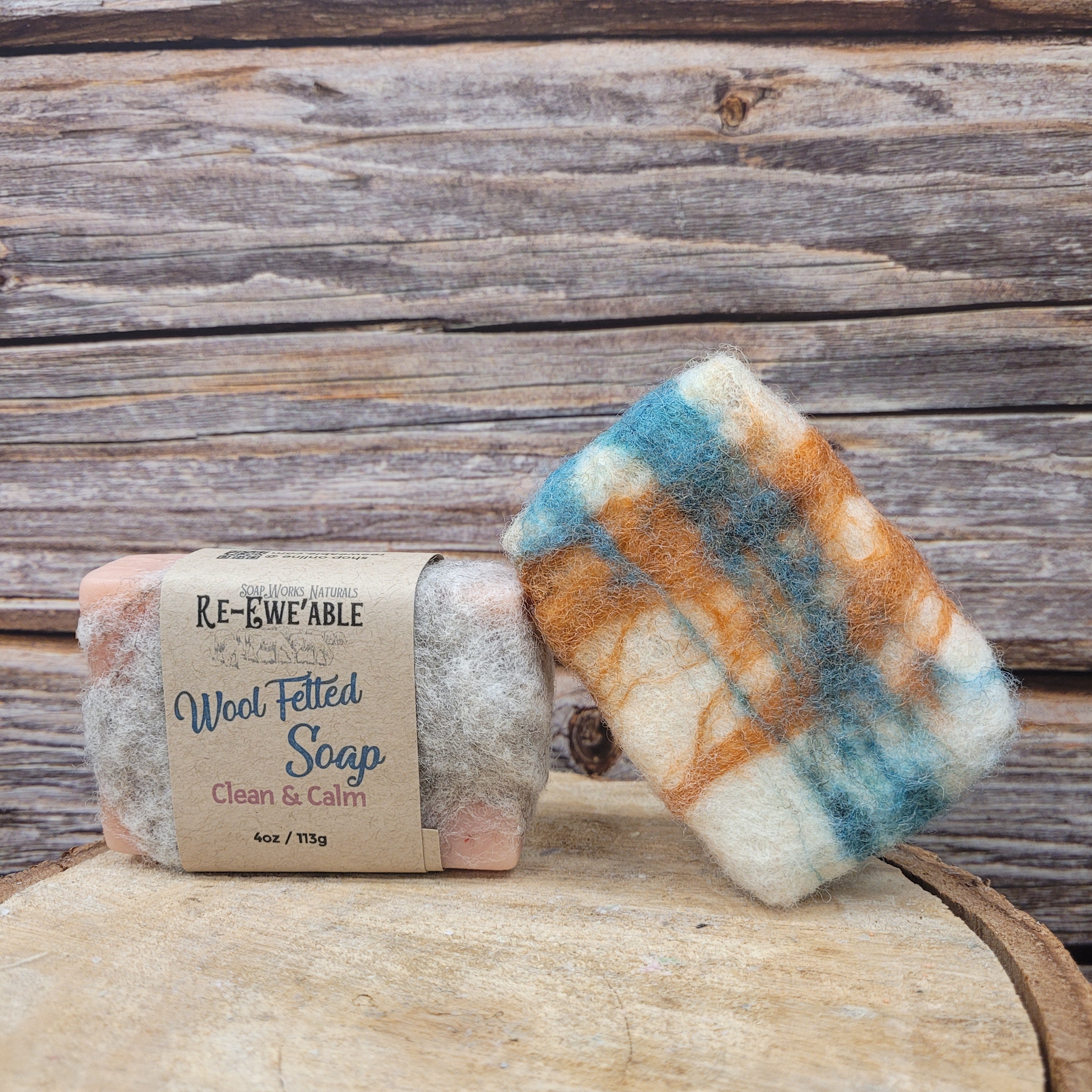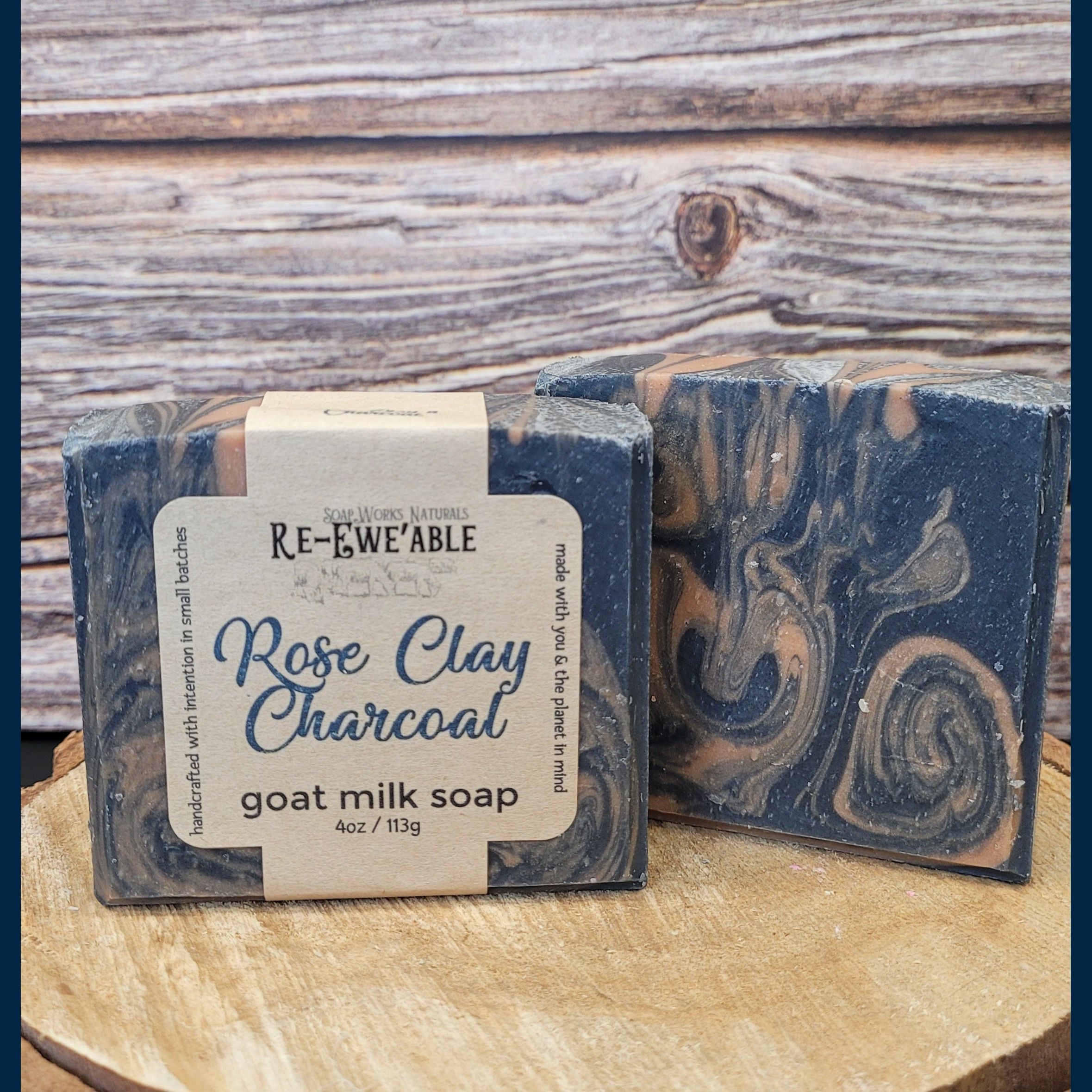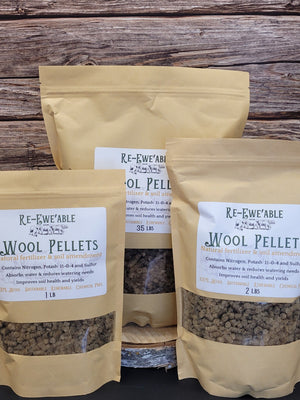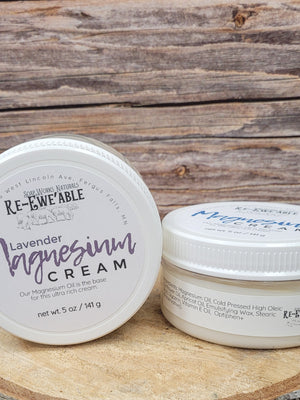Handmade Soap FAQ's
Collapsible content

What is cold process soap?
Cold process soap is made by combining oils or fats with lye (sodium hydroxide) and water, which triggers a chemical reaction called saponification. The mixture is poured into molds, cured for 4-6 weeks, and results in a hard, long-lasting bar of soap.
How is cold process soap different from commercial soap?
Ingredients: Cold process soap uses natural oils, butters, and additives clays, micas for color, skin safe fragrance oils or essential oils. Commercial soaps often contain synthetic detergents, fragrances, preservatives and other chemicals and ingredients.
Glycerin: Cold process soap retains natural glycerin, a moisturizing byproduct of saponification, while commercial soaps often remove it for other uses.
Customization: Handcrafted soaps are customizable with unique scents, colors, and textures, unlike mass-produced soaps.
Curing: Cold process soap requires curing for weeks to harden, ensuring mildness, while commercial soaps are ready immediately due to additives.
Is cold process soap safe to use?
Yes, when properly made, the lye fully reacts with oils during saponification, leaving no lye in the final product. The soap we craft is made with ingredients known for their skin loving qualities and is gentle and safe for skin.
Why does cold process soap need to cure?
Curing allows excess water to evaporate, creating a harder, longer-lasting bar. It also ensures the saponification process is complete (can take days to a week), making the soap milder and gentler on skin. Typical curing time is 4-6 weeks for the soap recipes we use.
What are the benefits of cold process soap?
Moisturizing: Retains natural glycerin, which hydrates skin.
Natural Ingredients: Often made with plant-based oils (e.g., olive, coconut, shea butter) and free of harsh chemicals.
Eco-Friendly: Biodegradable and often packaged minimally.
Customizable: Tailored for skin types (e.g., dry, oily) with additives like oatmeal, charcoal, or essential oils.
Unique: Each batch is artisanal, with distinct designs and scents.
Can cold process soap be used on sensitive skin?
Yes, but it depends on the ingredients. For those with sensitive skin we always recommend unscented and colorant free. Our #1 soap for those with sensitive skin is called Pigs & Goats.
How long does cold process soap last?
A well-made bar can last 4-8 weeks with daily use, depending on size and storage. To extend shelf life: Store in a cool, dry place. Use a draining soap dish to prevent mushiness. Keep away from direct water when not in use.
Are there vegan or nut-free cold process soaps?
Yes! Vegan soaps use plant-based oils (e.g., coconut, olive, almond) instead of animal fats like tallow. We have a good selection of Plant based and nut free soaps.
Collapsible content

Why does my soap have white spots or a powdery layer?
White Spots or a powdery layer: Soda ash, caused by a harmless reaction of lye with air during curing. This doesn’t affect soap quality and can be washed off.
Powdery Layer: Also soda ash, which doesn’t affect soap quality but can be scraped off for aesthetics.
Can cold process soap expire?
Soap doesn’t expire like food because of the saponification process it goes through when making it. We always say soaps get better with age because they continue to cure (lose moisture) and become more hard. The scent may fade in the outer layers but time doesn’t affect properly made soap.
What additives can be used in cold process soap?
Oils/Butters: Tallow,Lard, Coconut, olive, shea, cocoa butter for moisturizing or hardness.
Scent: Essential oils (lavender, tea tree) or skin safe fragrance oils.
Exfoliants: Oatmeal, coffee grounds, poppy seeds, pumice.
Colorants: Natural clays, mica, or plant-based dyes (e.g., spirulina, turmeric).
Herbs/Milk: Chamomile, goat milk, or honey for skin benefits.
Is cold process soap environmentally friendly?
Generally, yes. It’s biodegradable, uses natural ingredients, and often comes with minimal or plastic-free packaging.
How do I choose the right cold process soap for my skin type?
Dry Skin: Look for tallow, lard, olive oil, shea butter, or avocado oil soaps with moisturizing properties. We formulate all of our bars to be moisturizing and good for all skin types.
Oily Skin: Choose soaps with charcoal, clay, or tea tree oil to control oil.
Sensitive Skin: Opt for fragrance-free, gentle soaps with calming additives. We highly recommend our “Pigs & Goats” or “Naked” options.
Why is handcrafted soap more expensive than commercial soap?
Quality Ingredients: Premium oils, butters, and essential oils cost more than synthetic alternatives.
Small Batches: Artisanal production is labor-intensive and not mass-produced.
Time: Curing takes weeks, slowing production compared to commercial soaps.
Craftsmanship: Each bar is handmade, often with unique designs.
Can cold process soap be used for hair or shaving?
Hair: Yes, some soaps double as shampoo bars, especially those with nourishing oils like argan or castor oil. Check pH (should be slightly lower for hair) and avoid over cleansing. Some customers like the cold process hair & body bars that we sell, others prefer the “Solid Shampoo” bars that have some synthetic ingredients that are great for hair.
Shaving: Yes, soaps with high lather and moisturizing properties work well for shaving. Bentonite clay can add slip. We make a shave bar just for this purpose!
How do I store cold process soap?
Keep in a cool, dry place away from humidity.
Use a draining soap dish to keep bars dry between uses.







